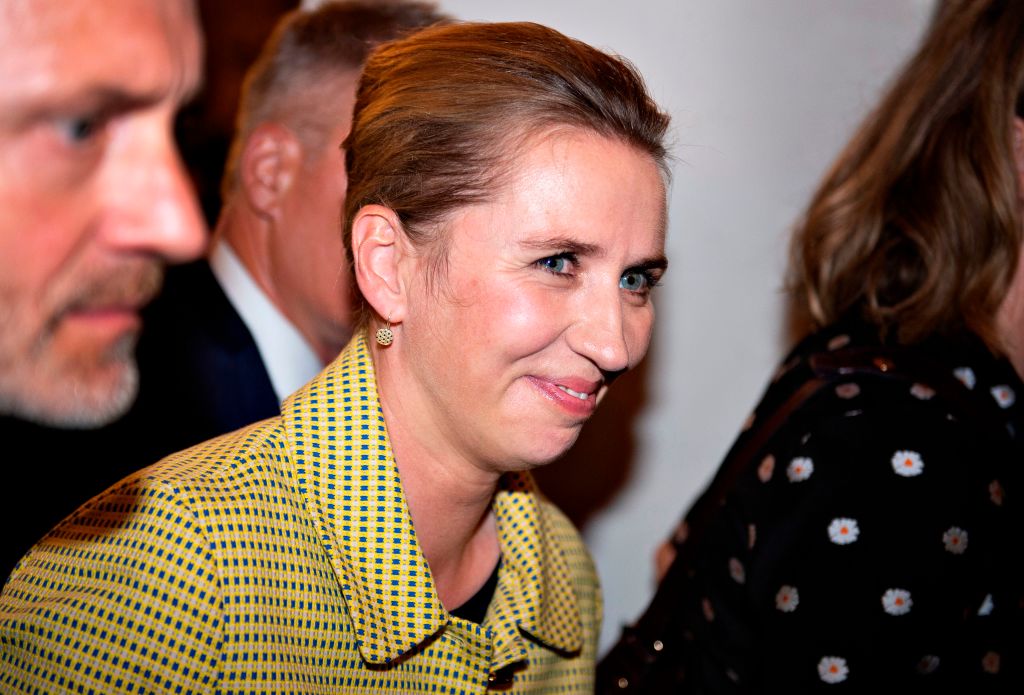Denmark's center-left Social Democrats win power after tacking right on immigration, left on welfare


A free daily email with the biggest news stories of the day – and the best features from TheWeek.com
You are now subscribed
Your newsletter sign-up was successful
Denmark's center-left Social Democrats won a plurality of seats in Wednesday's national elections, and Social Democrat leader Mette Frederiksen is expected to form the next government, taking over from outgoing Prime Minister Lars Lokke Rasmussen of the center-right Liberal Party (Venstre). The Social Democrats and their left-leaning "red bloc" won 91 of the 179 seats in the Folketing, or parliament, while the Liberals and their conservative "blue bloc" won 75 seats, according to exit polls. Support for the far-right Danish People's Party (DPP) collapsed; its 8.7 percent total was less than half what it won in 2015.
Denmark is now the third Nordic country to elect a center-left government in the past year, joining Sweden and Finland.
The Liberal Party has held power for 14 of the past 18 years, and the five "red bloc" parties were able to take back power on a platform of shoring up Denmark's welfare programs after years of cuts and supporting measures to fight climate change. The Social Democrats also tacked right on immigration, supporting the harsh anti-immigration policies the Liberals enacted, thanks in part to pressure from the DPP. The rightward tack on immigration was seen as a big reason the Social Democrats won and the DPP lost support.
The Week
Escape your echo chamber. Get the facts behind the news, plus analysis from multiple perspectives.

Sign up for The Week's Free Newsletters
From our morning news briefing to a weekly Good News Newsletter, get the best of The Week delivered directly to your inbox.
From our morning news briefing to a weekly Good News Newsletter, get the best of The Week delivered directly to your inbox.
Frederiksen, who at 41 would be Denmark's youngest prime minister ever, has said she wants to form a minority government with a broad spectrum of parties. Her party's partners on the left mostly don't support the Social Democrats' immigration policies, but Frederiksen has also ruled out forming a "grand coalition" with the Liberals, as Rasmussen has proposed. Rasmussen said on Wednesday night that he will submit his resignation on Thursday, adding that he'll be "standing by the phone" in case Frederiksen calls for coalition talks.
A free daily email with the biggest news stories of the day – and the best features from TheWeek.com
Peter has worked as a news and culture writer and editor at The Week since the site's launch in 2008. He covers politics, world affairs, religion and cultural currents. His journalism career began as a copy editor at a financial newswire and has included editorial positions at The New York Times Magazine, Facts on File, and Oregon State University.
-
 The Olympic timekeepers keeping the Games on track
The Olympic timekeepers keeping the Games on trackUnder the Radar Swiss watchmaking giant Omega has been at the finish line of every Olympic Games for nearly 100 years
-
 Will increasing tensions with Iran boil over into war?
Will increasing tensions with Iran boil over into war?Today’s Big Question President Donald Trump has recently been threatening the country
-
 Corruption: The spy sheikh and the president
Corruption: The spy sheikh and the presidentFeature Trump is at the center of another scandal
-
 Judge orders Washington slavery exhibit restored
Judge orders Washington slavery exhibit restoredSpeed Read The Trump administration took down displays about slavery at the President’s House Site in Philadelphia
-
 Hyatt chair joins growing list of Epstein files losers
Hyatt chair joins growing list of Epstein files losersSpeed Read Thomas Pritzker stepped down as executive chair of the Hyatt Hotels Corporation over his ties with Jeffrey Epstein and Ghislaine Maxwell
-
 Judge blocks Hegseth from punishing Kelly over video
Judge blocks Hegseth from punishing Kelly over videoSpeed Read Defense Secretary Pete Hegseth pushed for the senator to be demoted over a video in which he reminds military officials they should refuse illegal orders
-
 Trump’s EPA kills legal basis for federal climate policy
Trump’s EPA kills legal basis for federal climate policySpeed Read The government’s authority to regulate several planet-warming pollutants has been repealed
-
 House votes to end Trump’s Canada tariffs
House votes to end Trump’s Canada tariffsSpeed Read Six Republicans joined with Democrats to repeal the president’s tariffs
-
 Bondi, Democrats clash over Epstein in hearing
Bondi, Democrats clash over Epstein in hearingSpeed Read Attorney General Pam Bondi ignored survivors of convicted sex offender Jeffrey Epstein and demanded that Democrats apologize to Trump
-
 El Paso airspace closure tied to FAA-Pentagon standoff
El Paso airspace closure tied to FAA-Pentagon standoffSpeed Read The closure in the Texas border city stemmed from disagreements between the Federal Aviation Administration and Pentagon officials over drone-related tests
-
 Judge blocks Trump suit for Michigan voter rolls
Judge blocks Trump suit for Michigan voter rollsSpeed Read A Trump-appointed federal judge rejected the administration’s demand for voters’ personal data
